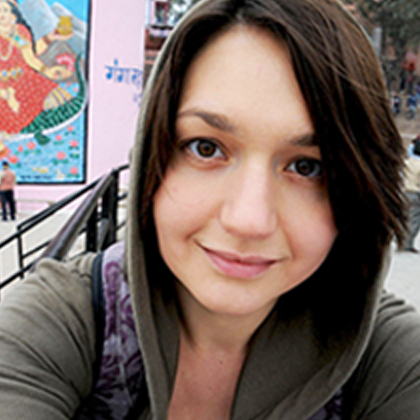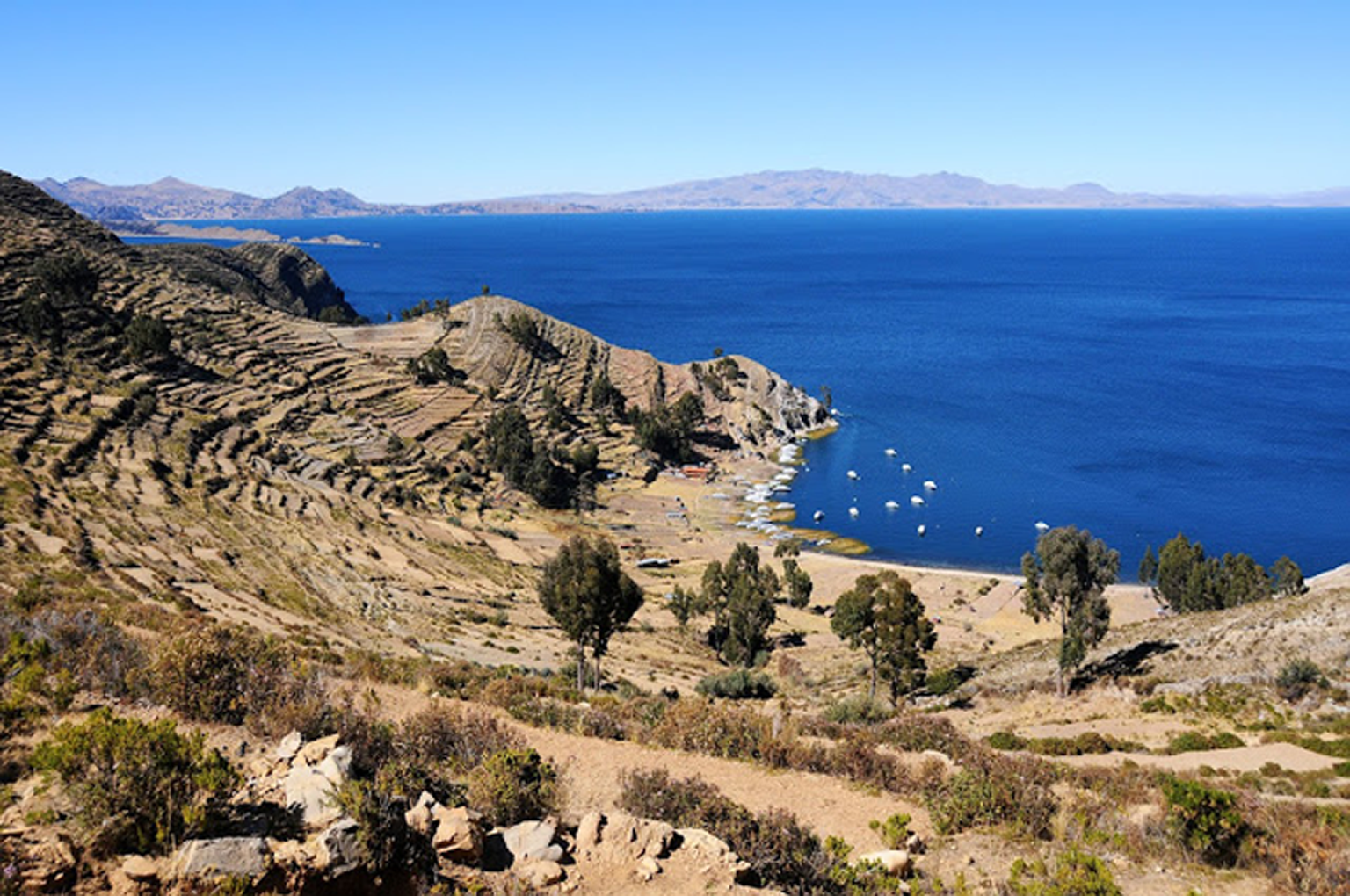- Posted by:
- anjci
- Under:
- Travel: Middle East
When I announced plans to visit Iraqi Kurdistan earlier this year, I encountered a variety of reactions.
My mother immediately sent me a message full of exclamation marks and emotional warnings to disown me if I went ahead with the plan (thankfully, she has since reconsidered). A few friends assumed I was joking and, after being presented with flight reservations as proof, asked if I was outright crazy. And only one person – a professional travel writer and one of the best-travelled people I know – excitedly commented that she, too, was heading to Iraqi Kurdistan in 2017.
It is a common preconception in the Western world that anything bearing the name “Iraq” is essentially a warzone and must be avoided. The UK Foreign and Commonwealth Office advises against all travel to most of Iraq, and against all but essential travel to the rest of the country – a view not dissimilar to that of other governments in the developed world.
Stern-looking gentlemen outside the Amna Suraka museum in Sulaymaniyah were happy to pose for a photo

It is easy to see why: chunks of the country had fallen under the control of Daesh in the past and terrorism is a major threat in many parts of Iraq. According to the latest Global Peace Index report, Iraq is ranked as the third most dangerous country in the world, superseded only by Syria and Afghanistan. Internal conflicts have cost Iraq a high number of deaths, severe population displacement and widespread destruction of vital infrastructure.
Amid the largely depressing statistics and media coverage, one region stands out positively from the rest. Iraqi Kurdistan (officially “Kurdistan Region”) is an autonomous region within the borders of Iraq and is, in many ways, worlds apart from the rest of the country. Significantly fewer terrorism incidents have been recorded in Iraqi Kurdistan than in Iraq’s southern provinces. And the comparison would have been even more favourable had Iraqi Kurdistan not been sharing a border with Daesh insurgents in the neighbouring Syria, who continue to occupy (ever shrinking) territories in western Iraqi Kurdistan.
Kurdistan Region of Iraq enjoys substantial autonomy and has its own flag

I must start by refuting the popular myth straight away: I did not once feel threatened or in any sort of danger during my 5-day visit to Iraqi Kurdistan. In fact, I felt in greater safety than in many parts of the developed world. Locals in Iraqi Kurdistan were infinitely welcoming to me as a foreigner, and it did not cross my mind once that any one of them could possess any personal threat. Security in the region is on a very high level, with frequent checkpoints and armed guards – some people might have felt uneasy by this, but such heightened security measures actually gave me comfort. They are there for a reason, and they are certainly working well.
IRAQI KURDISTAN: WHY VISIT
I understand that Iraqi Kurdistan might be safer than elsewhere in Iraq, I hear you say. But why visit anyway? There are far safer places in the world that do not involve taking precautions fit for a war zone. Even more so, there are Kurdish areas in countries around Iraq that remain relatively safe, such as Turkey and Iran. Why would anyone still want to visit Iraqi Kurdistan?
Striking Rabban Hormizd Monastery: one of many reasons to visit Iraqi Kurdistan

This is a fair question. I can clearly see why many people I know would not enjoy visiting the region at all, again on perceived safety grounds and for the fact that much more “tourist-friendly” destinations are available elsewhere. And, if I was asked to recommend one place for someone to visit in their lifetime, I would be going through a long list before coming close to Iraqi Kurdistan.
There are, however, multiple advantages to visiting Iraqi Kurdistan. Firstly, the region provides a great opportunity to observe Kurdish culture with relatively little travel effort. I could have headed to the Kurdish villages of Iran – the country I greatly enjoyed visiting in 2015 – but certain aspects of Iran made this option cumbersome. Obtaining an Iranian visa took me a lot of effort and money last time, my head scarf kept flying off my head for the lack of practice and I missed being able to purchase alcohol freely (I am not an alcoholic but the principle is important). Iraqi Kurdistan was different: I could enter visa-free (more on that below), women are not required to cover their heads and alcohol is not only legal but fairly popular and easily accessible in the autonomous region (it is officially banned elsewhere in Iraq, though the degree of enforcement varies by region).
Kurdish ladies in Koya, all dressed up for a family member’s wedding

Secondly, visiting Iraqi Kurdistan may be a traveller’s only opportunity to set foot in Iraq in relative safety. I do not see myself heading to southern Iraq anytime soon, but was keen to get a glimpse of a safer part of the country. My choice was to skip Iraq altogether (most likely in my lifetime) or limit myself to Iraqi Kurdistan – pretty much a no-brainer to anyone who knows me.
Finally, my biggest reason to visit Iraqi Kurdistan was personal. I had for a while been fascinated by the Kurdish culture and the Kurds’ ability to create an orderly state amid relative chaos around them. Having finally visited, I would certainly say that the trip to Iraqi Kurdistan became one of my most special – if not outright life-changing – travel experiences.
IRAQI KURDISTAN: HOW TO ENTER
I flew into Sulaymaniyah and out of Erbil, which was a perfect way to avoid having to loop back into the same airport in a short time. Sulaymaniyah and Erbil are Iraqi Kurdistan’s two largest cities and home to the region’s only international airports, with flights to many destinations in the Middle East, Turkey and Europe. The airlines serving Erbil and Sulaymaniyah are very similar. There are no direct flights from London, but I found multi-city flights to be particularly convenient with Turkish Airlines and Qatar Airways – as always, choosing the slightly more expensive Qatar Airways as a member of my preferred airline alliance, OneWorld.
Stunning mountain scenery on approach to Sulaymaniyah

Iraqi Kurdistan enjoys a high degree of autonomy from the rest of Iraq. While it is mandatory for nearly all visitors to southern Iraq to hold entry visas, Iraqi Kurdistan immigration officials issue visas on arrival to citizens of several countries, including the US, Canada and the EU countries. Such visas are valid for 30 days and cannot be used to gain entry to most parts of Iraq not controlled by the Kurdish forces. Certain areas controlled by the Iraqi forces and bordering the Kurdistan Region, however, can in practice be entered with a Kurdish visa alone, such as Mosul.
I used my UK passport to enter the region and found passport control a breeze: in great contrast to my short stopover in Doha a few hours earlier, I was not interrogated about the purpose of my visit or asked to show onward tickets and hotel reservations. It barely took me a couple of minutes to get stamped into the region, collect my small backpack, exchange some cash and hop on a taxi to central Sulaymaniyah.
IRAQI KURDISTAN: HOW TO GET AROUND
Public transportation in Iraqi Kurdistan leaves a lot to be desired. There are no passenger trains and all flying (e.g. between Erbil and Sulaymaniyah) would involve routing via Baghdad. The only public transport options in the region therefore are buses and shared taxis.
According to my research, intra-city buses are generally in poor condition and frequently break down. While roads in Iraqi Kurdistan generally tend to be good, many vehicles including public buses have been reported to drive at speeds unsafe for the condition of the road. Perhaps most importantly, buses tend to route through areas until recently not fully controlled by the Kurdish forces, such as central parts of Kirkuk and Mosul. Despite having been largely liberated, they used to be among the most dangerous cities in Iraq and remain not entirely safe.
Mountain road to Erbil via Lake Dokan (Dukan) bypasses the main route via Kirkuk

Shared taxis tend to be faster and, being more direct and bypassing dangerous areas, safer than buses. Getting a shared taxi in Iraqi Kurdistan is relatively easy, especially between major urban hubs like Erbil and Sulaymaniyah. Many shared taxis depart from a so-called “Garage” within the respective city, which is usually located outside central areas. For example, to travel from Sulaymaniyah to Erbil, you would ask to go to “Erbil Garage” in Sulaymaniyah, and vice versa. For popular urban destinations, shared taxis normally fill up and depart quickly, but more remote locations may require you to wait for a long time or pay for a private taxi.
Coming into Iraqi Kurdistan on my own, I decided to take every precaution to stay safe. Fearing road accidents and potentially risky routes, I chose not to use buses at all. Shared taxis were a better option – I have taken plenty of them all over the world without incidents – but taking one would make it impossible for me to make frequent stops along the way.
Because of these considerations, I opted to hire a private transfer for every single overland journey I made in Iraqi Kurdistan. Reluctant to pick someone off the street (or a new person every day), I reached out to fellow travellers and was recommended a trustworthy English-speaking driver for my entire trip. Sardar has substantial experience in taking foreigners, including journalists, around Iraqi Kurdistan and assured me that he knew exactly where it was safe to travel. He has even served as a fixer for reporters visiting Mosul, which – although I was not heading there – was a major selling point for me as a record of Sardar’s reliability.
Sardar: my excellent driver, guide and buddy

My peace of mind came at a price. I paid a hefty sum for three activity-packed days involving a day trip from Sulaymaniyah to Halabja, transfer from Sulaymaniyah to Erbil with plenty of stops, and a very long day trip from Erbil to the remote sites of Amedi, Rabban Hormizd and Lalish. This was more expensive compared to what I usually pay, and is certainly not something I would recommend to travellers on a budget.
However, I again emphasise that safety was of paramount importance to me. I was a solo female in an autonomous province bordering several areas known to present some danger to foreigners. I chose an experienced driver with stellar recommendations as someone I could trust, and was prepared to pay for the privilege. Moreover, some sites I was visiting were only sporadically covered by public transport: I certainly could not have made it to Amedi and Lalish in one day without private transfer and did not have the time to travel at a more leisurely pace.
Approaching Amedi on a very long day trip from Erbil

For risk-averse travellers who do not mind travelling as a group, there are several organised tour options to Iraqi Kurdistan.
IRAQI KURDISTAN: WHAT I COULD HAVE DONE DIFFERENTLY
It was definitely a brave decision for me to visit Iraqi Kurdistan in the summer. The reasons were simple: I had been fascinated by Iraqi Kurdistan for a long time and was not prepared to postpone my visit any longer. I had already made a lot of other travel plans for 2017, and my holiday count only worked if I planned a short visit incorporating a UK public holiday. Since I had plans for every long weekend of the year except the last Monday of August, I had pretty much no flexibility left. Being in full-time employment often dictates my travel dates, depriving me of some planning freedom.
Sporting appropriately loose clothes in Sulaymaniyah: modest and practical for the heat

The peak of the summer (mid-June to mid-August) is definitely not the best time to visit Iraqi Kurdistan. The region has a semi-arid continental climate, and its summers are extremely hot with temperatures reaching 45-50C degrees. Perhaps luckily, I reached Iraqi Kurdistan in the final days of August, when temperatures typically decrease to near comfortable levels of 30-35C. A northerner, I am the first person to complain if the thermometer shows anywhere above 18C; but, amazingly, I did not have any issues exploring Iraqi Kurdistan at the end of August.
Ironically, the region receives many visitors from the rest of Iraq in the summer: compared to the south, Iraqi Kurdistan sits on a higher elevation and is therefore notably cooler, especially around the mountainous areas. Of course, I would never call these temperatures “cool” as they were indeed among the highest I have experienced anywhere in my travels.
Baghdadi ladies on holiday in Iraqi Kurdistan

Summer does not come without its disadvantages. Not many people visit Iraqi Kurdistan to begin with, and the summer with its scorching heat is certainly a low season. As a result, I did not see a single foreign visitor in the region and received a queen’s welcome from locals everywhere I went. Prices for my private transfer and hotels had also been discounted from higher levels to reflect lower demand.
On a personal level, it was special to experience the region at a relatively unpopular time, sharing a certain kind of optimism with the locals as we tackled the heat together. And I appreciated the significantly lower humidity of the summer – at around 10-15%, it made the heat much more tolerable.
If I had to plan my visit to Iraqi Kurdistan all over again, I would do it around spring. After the rain and barrenness of the winter, it would make for a special experience to see the nature come back to life, splattering the region’s lush valleys with vibrant green. Spring is also the season for Nowruz, a great time to see the locals celebrating the spring equinox with picnics and dancing.
IRAQI KURDISTAN: A FINAL WORD OF WARNING
Most foreign visitors to Iraqi Kurdistan (whose accounts I have heard) have reported a trouble-free, if not outright positive, experience. While parts of southern Iraq may display anti-Western (particularly anti-American) sentiment, Kurds generally have a favourable view of westerners and are eager to make the few foreign visitors they receive feel welcome. I have personally not felt such a warm welcome from locals anywhere else in my travels, and am already making plans to revisit Iraqi Kurdistan – possibly as early as 2018.
Local men enjoy morning tea in Sulaymaniyah

However, it is important to remember that Iraqi Kurdistan is still a part of Iraq. While it reports better political stability and human rights record than the rest of the country, Iraqi Kurdistan has a long way to go to reach the standards on par with developed democracies. And it does not have a perfect safety record: while personal safety is notably higher in Iraqi Kurdistan compared to the rest of Iraq, the region has not been immune to trouble. In April 2015, a bomb detonated outside the US Consulate in a district of Erbil, killing and injuring several people; and, throughout 2016, Kurdish security agencies arrested members of Daesh planning attacks in Erbil and elsewhere in Iraqi Kurdistan.
I will therefore repeat the same advice I give to fellow travellers heading to destinations perceived as risky: even if your visit will probably go smoothly, do plenty of research, stay vigilant and keep a low profile. Your reward will be getting close to a unique location not frequented by other travellers and experiencing an unmatched local welcome.
Happy planning!













2017 Newsletter | ANJCI ALL OVER says:
December 22, 2017 at 7:00 pm
[…] summer coming to an end, I was off on another big adventure, to Iraqi Kurdistan via Qatar. The latter nearly killed me with its heat and humidity – I was fully aware of walking […]
2017: Year in Pictures | ANJCI ALL OVER says:
December 20, 2017 at 9:02 am
[…] READ MORE: IRAQI KURDISTAN: QUEEN’S WELCOME IN THE LAND OF THE KURDS […]
Journey through Iraqi Kurdistan in 40 photos - Anjci All Over says:
September 15, 2017 at 8:04 pm
[…] special, enough so to make me start planning my next visit soon. I have also written about practical matters of travelling in Iraqi Kurdistan, in particular the safety […]
Iraqi Kurdistan: Why it was so special - Anjci All Over says:
September 8, 2017 at 4:16 pm
[…] IRAQI KURDISTAN: QUEEN’S WELCOME IN THE LAND OF THE KURDS […]
anjciallover says:
September 4, 2017 at 10:59 pm
Hey Nellie! Thanks a lot. Glad your tour is filling up! Imagine, I actually ran into your guide Karwan in the lobby of my hotel in Erbil a few days ago. May have freaked him out 🙂 Seems like a nice enough chap! Looking forward to hearing your impressions ^_^
Nellie says:
September 4, 2017 at 7:21 pm
Hey Anna, good to hear about your positive experience! Iraq gets so much bad press that people are still shocked when they hear about anyone going there. Thanks for helping to demistify Kurdistan and spread the word for my trip. It’s almost full, with just one slot left. I can’t wait to head there in Oct!
Comments are closed.